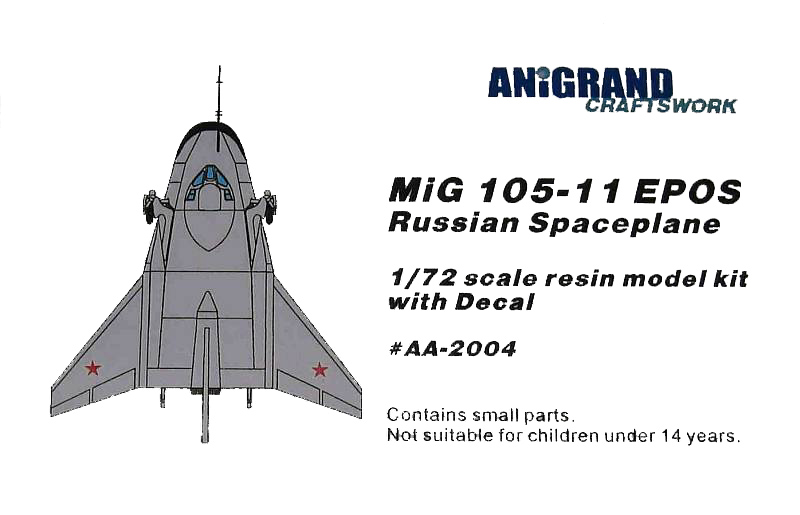MiG-105-11 EPOS - Soviet Mini-Space Plane (1976)
About the Design
In 1965, the Soviet Union initiated "Project Spiral" to develop a two-part spaceplane system for putting reusable spacecraft into low orbit. The system was to consist of a supersonic (or hypersonic) "mothership" and a smaller shuttle-like spaceplane to be carried on its back. In 1966, development of the Spiral spaceplane itself began. However, it wasn't until 11 years later that the first practical test vehicle, the MIG-105-11 EPOS (Experimental Passenger Orbital Spaceplane) was ready for its first flight.
This one-man lifting body was distinguished by its broad, upturned nose, a feature designed to minimize heating upon re-entry, and which earned it the nickname "Lapot" ("Wooden Shoe"). The craft made its first sub-sonic test drop on October 11, 1976. Tests continued until September 1978, at which time the under-funded and under-supported program was cancelled. The MIG-105-11 never actually made it into space. |
About the Kit
The MiG-105-11 was one of Anigrand Craftswork's first releases. Like most first-generation Anigrand kits, its tan resin suffered from numerous pinholes. The vacuform canopy was particularly problematic because it could not be fitted as one piece, but instead had to be cut up to form the various window sections. (In fact, in this model, I used only the front of the vacuform canopy section for the main windscreen. The side windows were made from MicroScale Crystal Clear.
The kit allowed the model to be built in the in-flight configuration or with a complex landing gear array. I chose to build the in-flight version. This model was built from an original issue. |


